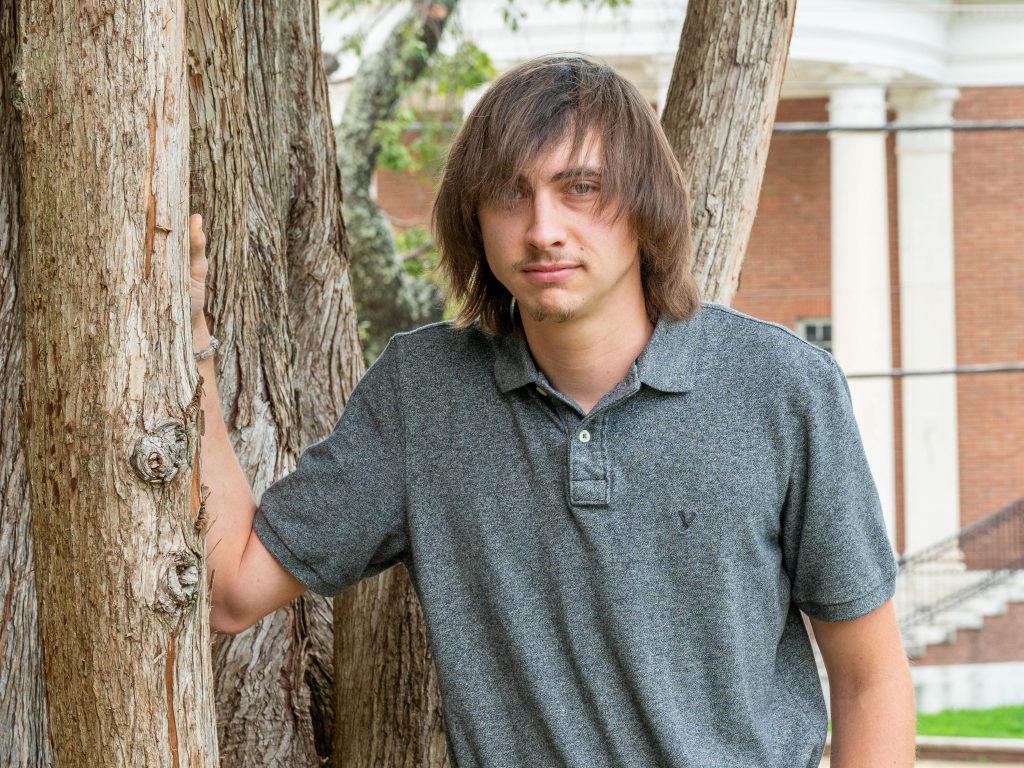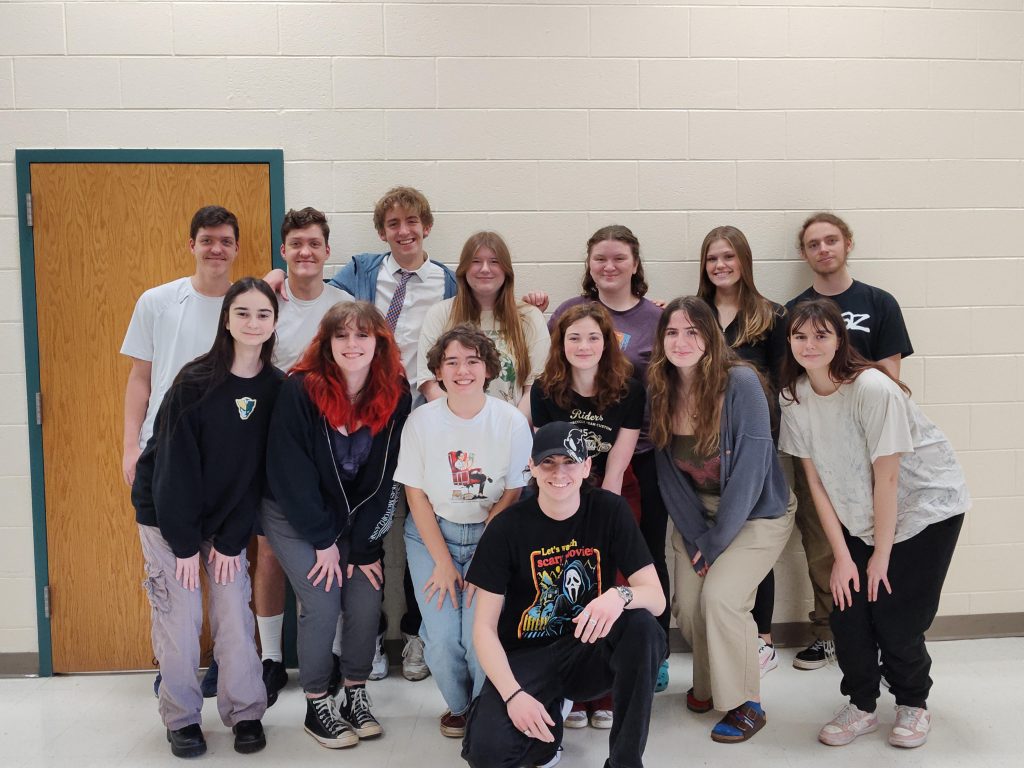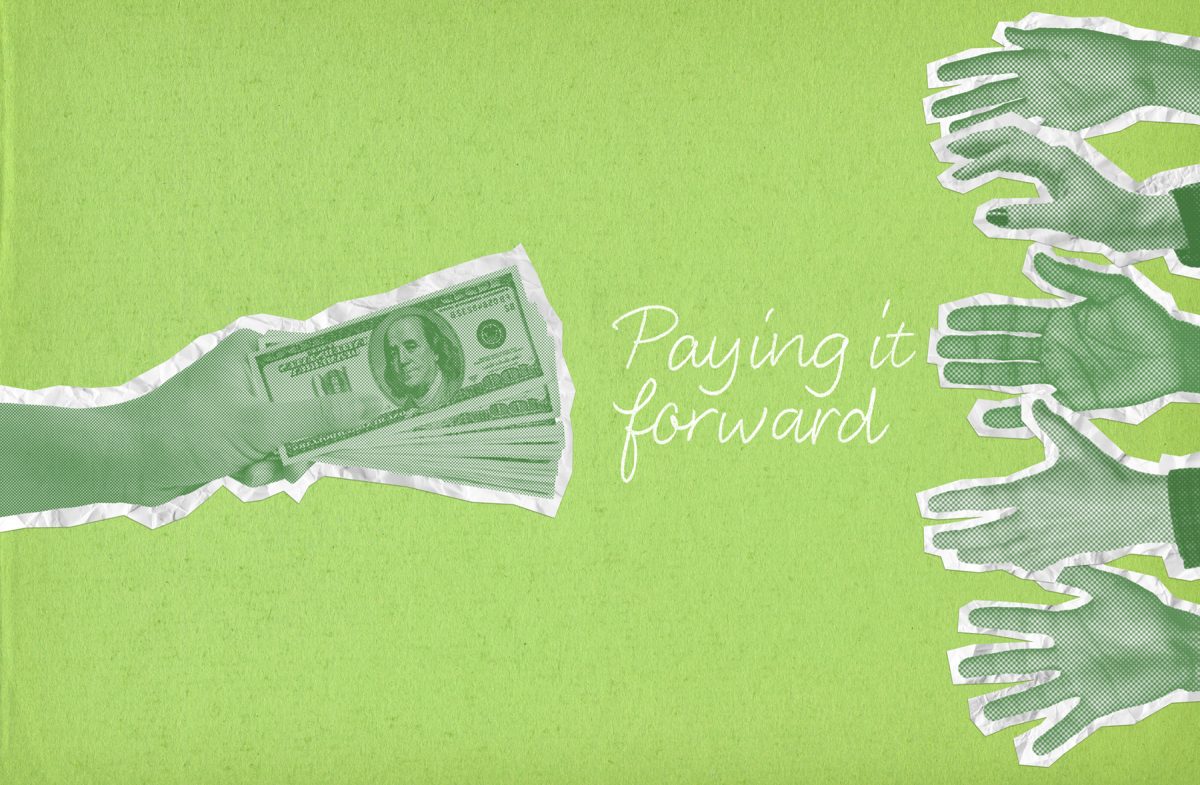Last summer, as Dakota Justus was revving up for his final year in high school, a couple of his teachers reached out to him about an opportunity to improve his community while also fulfilling a graduation requirement. He took the idea and ran with it. For his senior project, which would culminate his participation in the central Virginia-wide Blue Ridge Virtual Governor’s School program, Justus would create a club at Nelson County High School that allowed students to give back to their community: a new Youth Philanthropy Council—one of multiple in the region.
“[Philanthropy is] taking—even if it’s not much that you have—taking what you can give and trying to use that to better the world around you,” Justus says. “It’s just something really, really beautiful.”
Any senior project for the BRVGS program can be demanding, and starting a new philanthropy program in a small county is no easy feat, but Justus was up for the challenge to improve the place where he was born and raised.

Starting up
The first Youth Philanthropy Council program started in 2008 by the Community Foundation of the Central Blue Ridge. Miriam Burrows, the director of educational programs for the CFCBR, covers the basics of what the students learn.
“We start with saying, ‘Nonprofit 101: What is a nonprofit organization and what is philanthropy?’ Philanthropy literally means the love of mankind,” she says. “I like to think of it as a love your neighbor sort of thing.”
YPCs comprise young people in middle and high school (and now also fifth grade at Augusta’s YPC Junior). The students are taught what nonprofits are and why they’re important, what philanthropy is, and how giving to these organizations can make a big impact. After a proposal process, students are given a chunk of money, ranging from $100 to $30,000, to deploy to the nonprofits of their choice. The councils across Waynesboro, Staunton, Augusta, and Highland—and now Nelson—have not only allowed nonprofits to receive more funding, but they demonstrate the power of young people and their dedication to improving their communities both for others and for their own future.
The participating nonprofits must first submit applications to be considered to receive grants. A range of nonprofits can apply—from the YMCA to the Boys & Girls Club—as long as they contribute to the county. Once the board at CFCBR (or Nelson County Community Fund for the YPC in Nelson) narrows down a list of nonprofits from the applicant pool, the YPC vets each candidate, weighing the pros and cons of donating to each and considering their own interests and what they want to see in their communities. Dan Layman, CEO of the CFCBR, underscores the importance of having these nonprofits’ applications in the students’ decision-making process.
“We always ask those organizations to also help the students understand what they do by sharing a story about their work. That could be the impact they had on a specific client or a specific capital project that they undertook,” he says. “And just so the students, in lieu of being able to go to a site visit, can get a better understanding of ‘What does it look like on a day-to-day basis for this organization?’”
Getting together
After Justus showed interest in starting a YPC at his high school, he met with the board of directors at NCCF to learn more about what the council would look like, as well as some of the foundations of philanthropy. As he learned more and more about the process of creating the club, he realized he needed help from his peers.
“I can’t really do anything alone, so I had to go and get a group of students together. [That was] the next big challenge,” Justus says.
At Justus’ high school, the new YPC took the form of a club (as opposed to the YPC in Staunton, Augusta, and Waynesboro, where the organization comprises multiple high schools). He describes a good mix of students who showed interest: underclassmen, upperclassmen, athletes, musicians. “Despite everything they had going on in their lives in school and everything, they loved the idea of the opportunity to have a voice in their community and do something better,” Justus says.
This new YPC is supported by the NCCF, which strives to aid the community and address challenges through volunteering and donations. Now, the YPC is a new way of working toward these goals, in part thanks to Vice President of NCCF’s Board of Directors Jennell Charles, who worked with Justus to shape the new Nelson initiative.
Before handing over the money, students not only go through the educational process of learning about nonprofits and philanthropy, but also submit grant proposals to be reviewed by the board of the CFCBR (as well as the NCCF for the Nelson YPC). They present their applications in front of the board, including an explanation for their decisions, and participate in many intense discussions before receiving final approval.
“We could have students who were very passionate about one proposal and others [who] were not. Those particular meetings, if you were ever to sit in one, get quite intense and the students learn to advocate and compromise and figure out how best to utilize those funds,” says Layman. “They simply tell us, ‘Here are our decisions.’” Layman notes that the board makes every effort to support the students’ decisions, processing the grants and sending them out.

Making the difference
The Nelson YPC was given $15,000 to use in their donations. In the end, they only ended up using $12,000, giving $6,000 each to two nonprofits: The Bridge Ministry and the Nelson County Community Development Foundation. They saved the remaining $3,000 to use in the future. Justus was surprised they were even given that large of an amount of money at all.
“We ended up … saving a little bit to try and be able to give similar amounts next year,” he says. “But even taking that into account, that was a lot of money to all these high school students. I’m extremely grateful to all organizations involved because without them, we definitely would not have been able to have the level of effect that we were able to give.”
While these students aren’t the ones on the ground, they’re able to indirectly help improve their communities. “The point is to impact the lives of the residents of the county through the work that the nonprofits do,” Charles says. “What we can do as philanthropists is give them resources to support their work.”
Just as he describes his fellow classmates in Nelson’s YPC, Justus also demonstrates a clear interest in wanting to improve and care for his community. Justus, who is headed to George Mason University this fall to study computer game design, and his peers are passionate about preserving their hometown and want to have the option to return after pursuing higher education. For this reason, they chose one of the nonprofits because of its efforts to maintain affordable housing for Nelson County residents.
Per a 2022 five-year survey by the US Census Bureau, the median household income in Nelson is $64,028—more than $20,000 less than the state average. But home value in the area isn’t consistent with this amount, jumping from $190,700 to $275,100. This means that over that 10-year period, while income increased by nearly 30 percent, the median home value rose over 44 percent.
The Nelson County Community Development Foundation, one of the YPC’s 2023-2024 grant recipients, aims to serve primarily low-income individuals as well as those facing housing insecurity. Margaret Clair, the executive director of the NCCDF, says that the money is going toward first-time home buyers in the county to help them with closing costs. Each family will get $2,000 and one family has already received the support.
Hearing that these students are as passionate as they are about making affordable housing more accessible is moving for Clair as a parent and resident of Nelson.
“We’re hoping to be able to flip existing housing that needs to be rehabbed for sale to people who live or work in Nelson County. And that would include kids coming back,” she says. “They want to live in the county. I want them to live in the county. Their parents want them to live in the county. … My kids went to Nelson County schools, and two of them live with me right now because housing is ridiculous.”
It’s unclear whether affordable housing will continue to be a focus of the YPC this upcoming year, especially since the club will be under new leadership. But with the hard work of the YPC this past year, Justus and Nelson County High School students are working to make living in their hometown more accessible and paving the way for a better future.
“The YPC started out as just a governor’s school project,” Justus says. “But it grew into something that I became pretty passionate about and that I really want to see grow in future years.”
